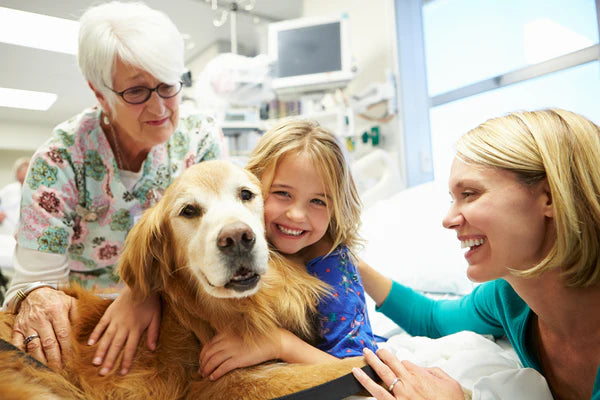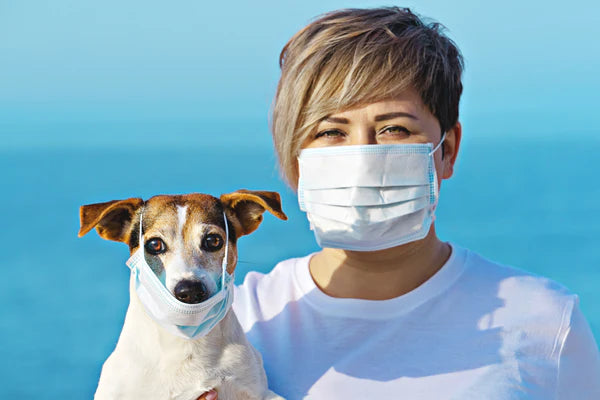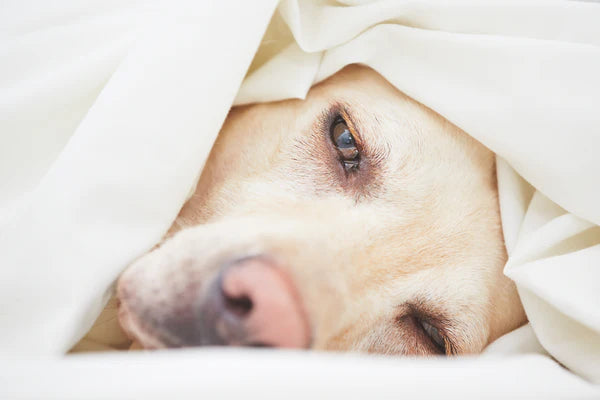3 WAYS YOUR DOG COULD DIE THIS WEEK - ARE YOU PREPARED? 2023
So picture this: you and your dog are playing fetch in the backyard when you hear the ice cream truck chiming in the distance. Your son pulls on your pant leg to ask for a few bucks, so you look away for just a second.
Then it happens…SQUIRREL! The tiny rodent catches your dog’s eye and he’s off running. You dart after him as he turns the corner. And then you hear it. The shrill sound of tires screeching sends a cold shiver down your spine.
You call out for him as you come upon the scene. You’re too late. Your precious little fur baby has been hit by a car, his front legs shivering. Thankfully, he’s still breathing. There’s still time to give him immediate medical attention. However, it is also important to remember that asking your vet for help is crucial during these situations.
Your Dog is Not Immune to the Risk of Accidents and Similar Pet Dangers

Sure, you may think that this happening to your dog is far-fetched. However, more than a million of dogs figure in vehicular accidents in and around the United States each year, making it an alarming factor for dog health.
When a dog is hit by a car, pet owners like us only have a short window of time to get help. Your pet's body may have been badly injured. Your dog may have broken bones. Your fur baby may be bleeding externally or internally. And you can bet there’s inflammation somewhere in your dog's body.
We don’t like to think about such things, but it can happen to many dogs. And this includes your own furry best friend. It is very important to remember that these unforeseen events don't just happen to "other dogs." You'd have to send your dog to the vet when things are really serious!
Maybe you didn’t realize the gate was left open or you’re on a walk and the leash breaks. Sadly, this could lead to your pet's passing and definitely not from a natural death. This is the biggest reason why it is always best to be prepared for these and other emergencies, aside from bringing your pet to the veterinarian when these things happen.
We’ll cover car accidents in greater detail soon, but there are other dangers you should be aware of, too. Some dangers may even seem benign until it’s almost too late. And like I said earlier, asking help from your vet is also key during these instances.
Let's start our discussion by going over the common signs that sick dogs typically display...
6 Simple Indicators of a Sick Dog

While this may sound surprising, a sick dog usually exhibits a few telling behaviors and mannerisms when he is going through some health issues. These are the things that a vet will usually check for, too. The following are the signs that most dogs will show during the early stages of disease and other illnesses:
Sudden lethargy and weakness
When something is making a dog sick, his energy levels will significantly drop. It's also not uncommon for dogs to show disinterest in their favorite activities. If you notice that this lethargy and weakness is already reaching extreme levels, make sure you call your veterinarian immediately. Don't hesitate to call your vet when your dog cannot properly move.
Loss of appetite
Another sign to look out for is unexpected loss of appetite, which goes on for more than a day. Whether you're serving your dog dry food or wet chow, you should get in touch with the vet's office if your pet hasn't eaten or only ate very little for the past couple of days. This could be a sign or an upset stomach or even internal bleeding in some rare cases. In some cases, the assessment of a vet is required.
Bad breath
Checking a dog's breath is a must during a pet physical exam because it can help determine a lot of health problems. It may be a sign of diabetes, dental issues, inflammation involving a dog's gums and gastrointestinal problems, among others. It may even be a symptom of kidney disease, too.
Other symptoms that can accompany this one is a noticeably high body temperature. Just to be sure, drop by your veterinarian to really get to the bottom of things. In most cases, a vet will find damage in the tissues that line your dog's mouth.
Displays of aggression
Just like us humans, a sick dog (and even other pets like cats) can also show changes in mood and behavior because of the health issue they're going through. Even the nicest and the most docile small dogs can suddenly snap when they're feeling under the weather.
It is possible that your dog is experiencing anxiety or overwhelming levels of stress. You can also get in touch with your vet on this problem. A veterinarian may recommend more activities since boredom can have an effect on a dog's mental health.
Skulking and hiding
Here's another indicator that you won't just notice in a few dogs: a sick pooch will usually avoid socialization. He will tend to hide under pieces of furniture or choose an isolated place to stay in. This is also a sign that a dog is going through a stressful time.
Abrupt weight loss
Due to the lack of eating, a sick dog often undergoes sudden weight loss. However, shedding off weight in an untimely manner can also be a sign of a number of health problems like diabetes, internal injuries like a broken bone as well as urinary tract infections.
Some injuries and health problems can require the medical assistance of a veterinarian. Don't be reluctant to contact your vet once you notice that your pooch is experiencing unexplained weight loss.
Now we've got that out of the way, let's check out the biggest challenge when it comes to a sick dog...
The Biggest Challenge When It Comes to Sick Dogs

What's really interesting about dogs is that they seem to have a very high pain threshold. A sick dog will often act normal for a long while. Dogs will often display pain and discomfort when it's already at a level that they cannot tolerate. Common signs of these include a change of stance in the back legs, a noticeable lividness in a dog's skin, and pale gums.
Although there are a number of natural remedies that you can go for to deal with illness in dogs, please don't hesitate to call a licensed veterinarian when you think things are becoming serious. This rule also applies to other pets that may be in your household.
Common Risk Factors Pet Parents Overlook
1. Diarrhea and vomiting
Diarrhea and vomiting are two symptoms that you shouldn't ever ignore. Sure these may stem from the usual upset stomach or some other minor gastrointestinal issue, but they can also be signs of a much more serious health problem.
Kidney disease and liver failure can be among these health problems. Your best choice is to provide the right natural care and attention as soon as possible or else you'll be in for very high vet bills before you know it.
- ON THE SAME TOPIC: 👉3 Ways Your Cat Could Die This Week - Are You Prepared?🐱
Many of our customers have successfully treated their dog’s vomiting and diarrhea without a trip to the vet, but sometimes the trip is necessary. In either case, you can take measures to stop the vomiting or diarrhea and address dangerous levels of dehydration with a natural product.
2. Poisonous flowers, leaves and roots
Whether you've got a small puppy or a senior dog, they can be prone to health problems if they accidentally nip or eat poisonous plants. And what's really alarming is that some pet parents don't have the slightest clue that they have a poisonous plant that their dog can easily get to (and eat while they're at it)!
Examples of these no-no plants are the Sago palm, cyclamen, philodendron, tulip, Japanese yew, Autumn crocus and oleander. Accidental ingestion of these plants can lead to serious adverse effects or even fatal to animals so please be very careful! (And while we're at it, here's a natural solution to help flush out unwanted toxins from your dog's body.)
3. Vehicular accidents
I know this sounds surprising, but there are nearly 1.2 million dogs killed on U.S. roads due to vehicular-related accidents annually. What's really sad is that most of these accidents can be triggered by simple lapses like a loose leash or a collar that's improperly placed.
-
YOU MIGHT ALSO LIKE: 👉7 Natural Ways To Improve Your Pet's Health For Life
And should the unthinkable happen and your dog does get hit by a car or some other vehicle, address any problems that can be quickly remedied and bring your pet to the vet right away. Seeking veterinary treatment is crucial since there may be internal injuries that need to be immediately dealt with.
How about we go over a few simple pointers that can help keep your dog happy and healthy for this part of our discussion?
3. Car Accident
You may think your dog is immune, but nearly 1.2 million dogs are killed on U.S. roads each year. That’s a staggering number. Of course, prevention is the ultimate goal. Don’t let your dog roam without a leash -- ever. Even if you’re just going from the car to the house, keep your dog by your side. If your dog does get hit, address any problems that can quickly be remedied and get to the vet right away.
Some Quick Tips to Keep Dog Health Ideal
If you're anything like most pet parents, chances are you already know that giving your dog the quality of life he truly deserves is a very big commitment. Keeping your dog in good shape is more than just regularly giving him food and water, a comfortable bed, and a nice place to stay inside the house. Here are a few simple and practical tips to consider:
Regular exercise is crucial.
Did you know that a sedentary lifestyle can make your pet a sick dog at some point? Dogs that don't have a regular workout regimen can be eventually vulnerable to not just obesity and unwanted weight gain, but also serious diseases like diabetes and heart issues.
Unlike what a lot of people mistakenly believe, properly exercising your pet doesn't have to involve long and grueling workout routines. A simple walk around the neighborhood, a bit of fetch, or an intense game of tug-of-war will already suffice. These activities will definitely get his blood flow going!
Looking to expand your dog exercise checklist? Click here to read a more comprehensive blog post about the creative ways to exercise your pooch indoors. These work really well even during the winter season, too!
Proper diet and nutrition should be a priority.
A dog significantly relies on the regular diet he's getting to grow and develop, as well as keep clear from illness. This isn't just about the quantity of food that your pet is getting. The quality of the same is also very important. The same goes for the drinking water your dog has access to.
I'd just like to emphasize that diet in dogs is an individual process. It is not the same for every dog. One may prefer boiled chicken while another might go for bland foods. White rice might help one pooch overcome fiber-related issues while another may not like the idea of a bland diet at all. Just like us humans, dogs can have a wide preference for food.
But one thing's for sure though. Regardless of breed, sex, and age, a dog will need to have regular access to fresh drinking water in his water bowl. (Here's a comprehensive list of what dogs can and cannot eat, too.)
Include bathing and grooming in your checklist.
Bathing and grooming don't just help your pet keep fresh and clean, which significantly prevents him from becoming a sick dog sooner or later. They can also help you spot signs of illness like flea dirt, pale gums, trouble breathing, and the sudden appearance of bald patches in long-haired dogs, among other symptoms.
Here's a quick tip: animals like dogs will only need a bath once every three months, unless they're really, really dirty—imagine your dog after rolling in mud. And please don't hesitate to call your vet if you happen to notice any problems that require immediate medical attention.
Consistent bonding has a lot of benefits.
Dogs are always up for any fun activity. Whether it's a game of hide-and-seek inside the house or sharing a snack to eat, you can turn the whole thing into an opportunity to bond and be closer to your pet. Moreover, you can also take advantage of this to check for any symptoms of the disease.
I usually check my dog's mouth, his ears, his belly, and in between his paws whenever we cuddle. I also make sure to check if he has trouble breathing, too, by putting an ear close to his chest. Again, please call your veterinary clinic if you observe any symptoms.
Don't ignore sudden changes in his daily routine.
If your dog is anything like most dogs, then chances are he is a creature of habit. Whether it's the food he likes to eat or the places he prefers to stay in and around the house, you can expect your dog to have a daily routine. However, abrupt changes in the "schedule" of your dog can already be a reason to call your veterinarian.
An easy example would be your dog that's a fan of boiled chicken suddenly stops eating it altogether and munches on grass instead. While this can be attributed to minor issues like a simple nick or lesion in the mouth, they can also involve symptoms that need the help of a vet.
Have an emergency kit ready.
There are pet emergencies that you don't have to call your vet for. These include dealing with mosquito bites, small blisters, or wounds as well as changing up your pet's meal plan in case he requires a bland diet, more fiber with white rice, or some other straightforward nutritional shift.
Interestingly, there are several natural options you can go for when it comes to these minor health problems, which I'll get you in on in just a bit. But like I pointed out earlier, don't hesitate to call your vet in cases where the problem already requires advanced technical know-how.
When to Take Dog to Emergency Vet

While Zumalka is an advocate of natural remedies as regards supporting the health and wellness of animals, we also consider the help of a veterinarian as indispensable when it comes to keeping your dog in the pink.
The rule of thumb is if your dog is experiencing a minor health problem that you can easily take care of, you may pass up on reaching out to a veterinarian. However, if you're dealing with an emergency, like when your pet has food poisoning or is hit by a car, then a trip to the vet is already in order.
Why Having an Emergency Kit at Home is a Must
Adding a home emergency kit to your pet care checklist is essential because it won't just give your pooch added protection on a daily basis, but also immediate support as soon as you notice symptoms of health problems in dogs. Let me highlight the two (2) most important reasons why you need one as a dog parent:
It helps you be prepared at all times.
Your dog is always at risk of health problems. No matter how prepared you think you are, there will be a disease or some other illness that will affect your dog without a warning. Making sure that you have your very own dog emergency kit will help you get the peace of mind you need to keep your pet happy and healthy.
It helps you give your dog the proper care and attention immediately.
You never know when an emergency will take place when it comes to animals like dogs. Whether it's the aftermath of a bad fall or an encounter with a poisonous plant that your dog mistakenly thought was food, immediate care, and attention must be given. Not doing so can lead to significant life consequences for pets.
How to Handle an Emergency Involving Your Beloved Family Pet

We at Zumalka put together a reliable go-to Emergency Natural First Aid Package that you can reach for when dog emergencies get in the picture. Taking your dog to the veterinarian may take quite some time in these situations, so it's really handy to have one to give your pet the support he needs straight away.
Our EMERGENCY NATURAL FIRST AID KIT is designed to provide your dog with the right care and attention he needs while you're still on your way to the vet. You can think of it as a more natural option to start making things better before you reach your veterinarian.
What You'll Find in Our Emergency Kit for Sick Dogs
Our EMERGENCY NATURAL FIRST AID KIT is formulated to cover the most common health problems that a dog can be prone to at some point or another. Here are the natural support products that you and your dog are in for when you include this kit in your home pet care checklist:
Homeopathic diarrhea support
Dogs can experience "the runs" unexpectedly. This could be due to bad food, some gastrointestinal issues, or some other symptoms. Our LOOSE STOOLS is specially crafted to address the root cause of diarrhea as it works to support good digestion and better intestinal health. In some cases, diarrhea can even be aggravated by vomiting!
When you've got this one in your arsenal of dog care support products, you are sure to give your pet the care and attention he needs when this issue pops up the least you expect it. Your vet will appreciate your proactive mindset, too.
Homeopathic vomiting support
Vomiting is a problem that dogs can be vulnerable to just about at any time. Our VOMIPET is formulated to address digestive discomfort and nausea. Additionally, this product also helps support your pet's digestive health while promoting his comfort during situations where nausea could be triggered such as traveling.
Nausea and vomiting can be set off by factors such as spoiled food, ingestion of foreign objects as well as the presence of parasites. And your dog usually doesn't give tell-tale signs that he's going to throw up sooner or later. You can use it for support just before you visit your veterinarian.
Homeopathic first aid support
If your pet is like most dogs, it's highly likely that he isn't a stranger to nicks, cuts, scrapes, abrasions, and similar problems. There's even a chance that he gets into blunders almost every day, which can be frustrating at times!
Our EMERGENCYPET is formulated to help restore the skin, bone, and ligaments after an injury. It is also helpful in the event of trauma, contusions, limb hyperextensions, sprain hematomas and so much more. Moreover, this product will help promote his body’s natural healing responses.
TONICPET #4
Formulated as a natural anti-inflammatory to optimize pain relief results for your pooch, TONICPET #4 also supports the circulation of oxygen in all parts of the body. You can think of it as an anti-inflammatory straight from Mother Nature's medicine cabinet.
Moreover, this premium natural product can be used to promote a healthy body temperature, particularly in cases of elevated internal temperature as well as sprains, strains, fractures, and bruises. These issues need to be dealt with straight away to prevent aggravation, even before you send your dog to the vet.
TONICPET #9
There are times when pet emergencies are triggered by dehydration. It's also not uncommon for these unexpected events to be set off by excessive levels of water in an animal's body, as symptoms of underlying conditions.
Aside from optimizing hydration levels in your pet's system, TONICPET #9 is also designed to help balance your dog's red blood cell count using a gentle, holistic approach. An excessive supply of red blood cells can potentially cause lung, heart, and kidney disease.
Quick Tips on How to Use Our Natural Pet Emergency Kit
As pet parents ourselves, we at Zumalka know that emergencies require quick and hassle-free solutions. This is why we've made it a point to formulate our natural pet emergency kit to be as simple and uncomplicated as possible. Here's a quick guide on how to use it:
Unexpected vomiting and diarrhea
Don't you notice that pets seem to have these issues at very inconvenient times? Like in the middle of the night or during the wee hours of the morning? When vomiting and diarrhea strike, you can use TONICPET #9 to start balancing your pet's fluids and keep him clear from dehydration, too.
Other symptoms to look out for include sudden retching, frequent pawing at the stomach, and drooling at the mouth. This is commonly due to food-borne issues, but can also be triggered by an underlying health problem. A dog going through an upset tummy can also pace restlessly in irregular intervals.
If the symptoms persist, make sure you contact your vet immediately. Bring your pet to the veterinarian when you notice that he is in constant pain, too. Your vet can assess the next course of action during extreme situations.
An untimely run-in with a vehicle
I'm sure that one of the things you don't ever want to think about is your pet figuring in a vehicular accident of some kind. And should this happen, your pet could be in a critical condition and will require medical care and attention straight away. Sending him to the veterinarian is also a priority!
Make it a point to administer EMERGENCY PET and TONICPET #9 as soon as you can and get to the vet straight away.
The Right Know-How and Preparation Count a Lot
The main point that I'm trying to get across is that not immediately dealing with emergencies the right way can lead to fatal consequences. These unexpected events can just happen at any time. And if you don't have the right preparation and know-how, such as having a reliable go-to kit specially designed to take care of these instances, things can go downhill really fast.
Even if you do manage to get your pet to the vet, chances are things are already too late. You see, not dealing with vomiting and diarrhea can lead to dehydration. Several other complications can also get in the picture.
Don't Let Your Dog Fall Victim to Emergencies
We’ve heard too many horror stories about dogs who have been lost to something that can be treated so simply. These also involve symptoms or indicators that are already tell-tale signs that something serious is going to happen. In every case, we wish we could have gotten involved sooner.
If only we could have told these dog owners about the homeopathic products designed to quickly limit the effects of dehydration by addressing vomiting and diarrhea earlier. Losing a pet can be very difficult!
Conclusion
I hope that this article helped you a lot! As a contributing writer, I always make it a point to share my personal experiences as a way to emphasize certain ideas that I consider really important. It's my habit to share best practices, awesome ideas, and no-fuss pet care tips! Sharing is caring, right?
As regards the EMERGENCY NATURAL FIRST AID KIT, I always keep these products on hand for our dog, Westin, and I’ve already used them many times. His symptoms usually subside on the same day. Depending on the ailment, your dog may need further care, but the simple act of limiting dehydration can save your dog’s life.
Because the consequences can be so severe, we recommend that all dog owners keep these products on hand at all times. When vomiting or diarrhea strikes, be prepared. If your dog gets hit by a car or bit by another animal, be prepared. The main thing here is ALWAYS BE PREPARED.
When your dog is sick, you may not have much time. Don't ever ignore even the most trivial symptoms like vomiting and diarrhea. Be prepared with an Emergency Kit on hand! And always remember that it is better to be safe than sorry.





Leave a comment